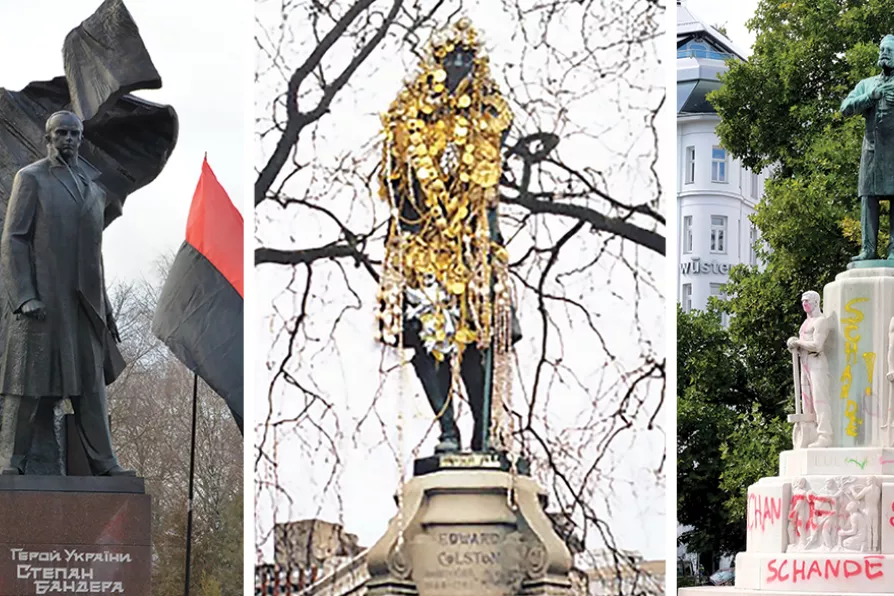TONY BURKE speaks to Gambian kora player SUNTOU SUSSO

 VEXED PRESENCE: (L to R) Stepan Bandera monument in Ternopil, western Ukraine; Colston, from the Hew Locke series Restoration, 2006; ‘Shame’ painted on the Karl Lueger statue in Vienna, 2020
[(L to R) Mykola Vasylechko/CC - Kasa Fue/CC - Hew Locke/Spike Island]
VEXED PRESENCE: (L to R) Stepan Bandera monument in Ternopil, western Ukraine; Colston, from the Hew Locke series Restoration, 2006; ‘Shame’ painted on the Karl Lueger statue in Vienna, 2020
[(L to R) Mykola Vasylechko/CC - Kasa Fue/CC - Hew Locke/Spike Island]
EVERY JANUARY, and this one’s no exception, witnesses a ritual of defacing or bringing down of statues of James Cook in Australia in well-planned interventions by those who protest against linking Australia Day to his arrival on the continent in January 1788 and the genocide of native people that followed.
Nearly 20 years earlier, in 2006, British artist Hew Locke mercilessly ridiculed slaver Edward Colston by adorning his statue in Bristol with glittering, ersatz-gold regalia and trinkets as part of his Restoration series.
Locke’s intention to expose Colston’s involvement in corruption and enrichment through slavery was abundantly clear but, at the time, the message remained largely within the realm of contemporary art.

As Moscow celebrates the 80th anniversary of the Nazi defeat without Western allies in attendance, the EU even sanctions nations choosing to attend, revealing how completely the USSR's sacrifice of 27 million lives has been erased, argues KATE CLARK













